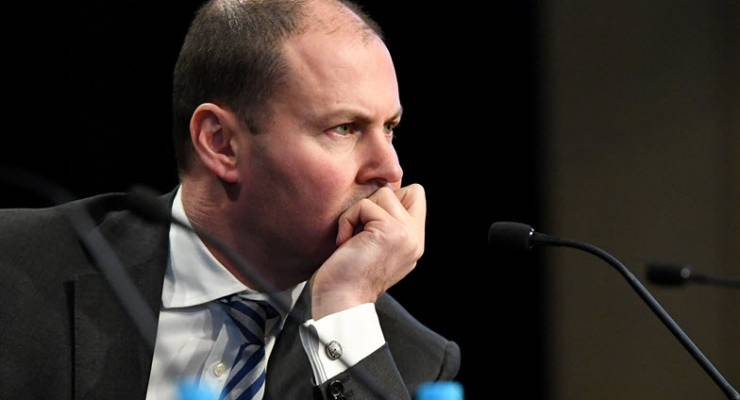
Energy Minister Josh Frydenberg has effectively confirmed that the government will be pursuing a political strategy of continuing to attack Labor on energy policy, rather than committing to a bipartisan approach that will provide investor certainty.
In a speech in Sydney this morning, distributed to newspapers ahead of time, Frydenberg argued that the costs of solar, wind and battery storage were falling so quickly that, along with greater demand management, no further incentives may be needed to encourage investment in renewable energy, obviating the need for a Clean Energy Target as recommended by the government’s own energy review by Chief Scientist Alan Finkel.
At the time of its release, the review was criticised within the Coalition for overstating the economic case for renewables at the expense of emissions-intensive coal-fired power, which would appear to contradict Frydenberg’s latest position. The government remains bitterly divided over a Clean Energy Target and has been unable to reach an agreed position internally, leaving energy investors uncertain as to what the ground rules for energy infrastructure in Australia are.
Labor has shifted position twice on the issue in order to reach an accommodation with the government to provide investor certainty. However, the government has seized on energy as an issue on which it believes it can undermine Labor’s significant polling lead, and a bipartisan deal would remove that issue at a stroke.
The Finkel review recommended a CET as the lowest cost transition mechanism to meet Australia’s international carbon abatement commitments, finding it was substantially lower cost than a business-as-usual scenario — under which coal-fired power ended up with an even smaller role than under a CET, due to investment uncertainty. Frydenberg’s foreshadowed no-CET stance would place Australia on the higher-cost “business as usual” track. The government has separately imposed new requirements on new renewable energy projects that they provide back-up battery storage, has flagged it may fund new coal-fired power stations and demanded that AGL keep open its ancient Liddell coal-fired power station in NSW.








As usual politics before the planet. CET, Adani.
Does this mean our Government has determined to be Terrorists on the environment for purely political gain? If you want your citizens safe from terrorism shouldn’t this include the environmental safety of citizens too? Rising sea levels and temperatures will endanger many more than a child with a knife or a disturbed individual in a motor vehicle – bomb included or not. Power at any cost should be this Governments motto.
Finkel thought he was giving the gov’t a middle-of-the-road solution with a fairly modest CET instead of the other possibilities. However he underestimated their paralysis on any energy issue.
Not sure that paralysis is the right word Robert – determined economic and environmental vandalism would be more appropriate, accompanied by a standard of lying Goebbels would have been proud of.
Didn’t they distance themselves from Labor in claiming that they actually managed to get it through, and dragged Alan Finkel into the whole thing, only to give up now?
Once again we see LNP embracing politics over policy. Then they wonder why people don’t like or trust them…